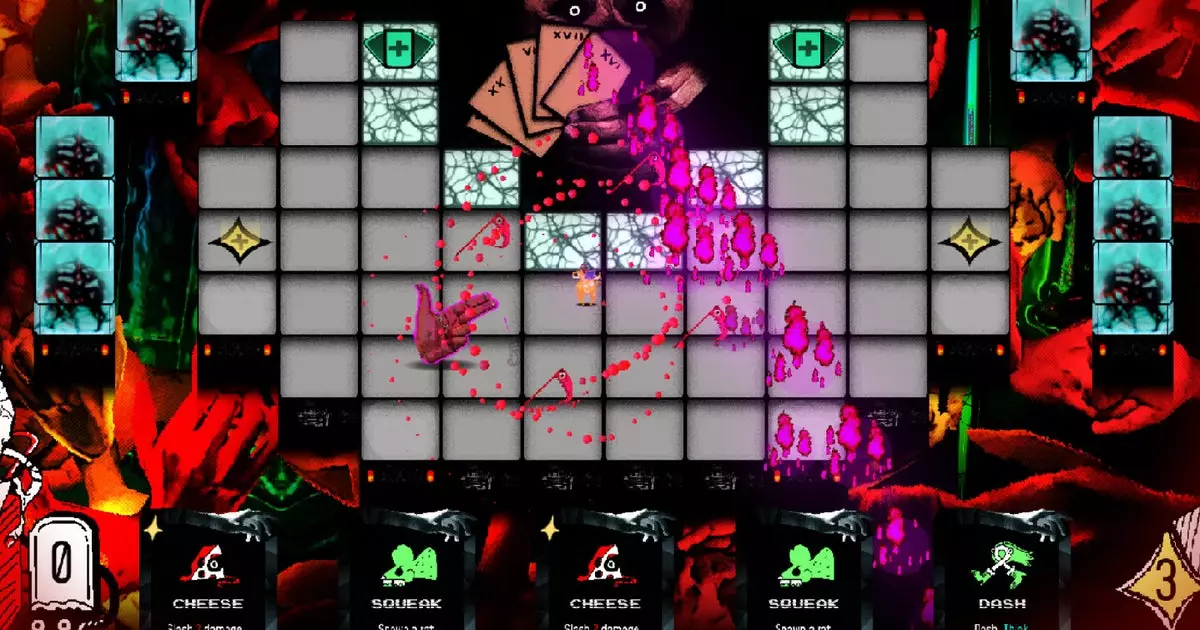In the eclectic world of indie gaming, few titles evoke as much intrigue as LYMBUS, a work-in-progress from Happy Accident Studios. The demo, titled “Incomplete Edition,” plunges players into a universe that is as bewildering as it is captivating. It presents a unique mixture of genres, combining elements of roguelike mechanics and bullet-hell chaos with card-based strategy, leading to an experience that both challenges and entertains. Upon first glance, one might feel that LYMBUS is a puzzle wrapped in a conundrum, begging players to engage in a cerebral yet visceral exploration of its chaotic mechanics.
At the heart of LYMBUS is a rather inventive narrative premise where neuromechanical advancements have inadvertently trapped humanity in a state of collective amnesia. Players are thrust into the role of a memory diver, tasked with navigating through the metaphysical essence of humankind to retrieve lost memories that hold the potential to restore consciousness. This creative storytelling sets a rich backdrop for a game that is not just about combat, but also about unveiling layers of forgotten experiences and consequences.
This narrative is not just window dressing; it significantly adds depth to the gameplay, allowing players to connect emotionally with the chaos unfolding onscreen. The concept of battling through shards of memory while evoking surreal and grotesque imagery heightens the thematic stakes, transforming what might initially appear as a conventional shooter into a nuanced exploration of identity and memory.
The mechanics are what truly set LYMBUS apart. The game operates in real-time, eliminating the slowdowns usually found in turn-based systems. Players must deftly juggle their card deck while remaining agile in a frantic bullet hell landscape. The use of cards to perform actions such as attacking, dodging, and utilizing special abilities adds an intriguing layer of strategy that encourages players to think on their feet. However, the need to regularly switch between cards while traversing a maze of enemy attacks provides a challenging dynamic that can be both thrilling and maddening.
Moreover, the introduction of resource management—a real-time replenishing currency for playing cards—forces players to make split-second decisions that can significantly alter their tactical approach. The burning of cards upon use, contrasted with uncovering new ones amid the chaos, means that players must adapt continuously, effectively redefining their strategies as they spiral deeper into the game’s frantic rhythm.
As players anticipate the full release of LYMBUS, it is essential to acknowledge its ambitious fusion of genres and innovative gameplay mechanics. Happy Accident Studios has crafted an experience that is laden with complexity, challenging even the most experienced gamers to reconsider their strategies amidst the disorienting pace of combat. With a narrative that invites introspection and gameplay mechanics that prioritize dexterity and resource management, LYMBUS promises an unforgettable journey into the abyss of memory and chaos. It remains to be seen how the final product will shape up, but the demo already reveals a tantalizing glimpse into a world where game design transcends mere entertainment, beckoning players to engage with its underlying themes.

